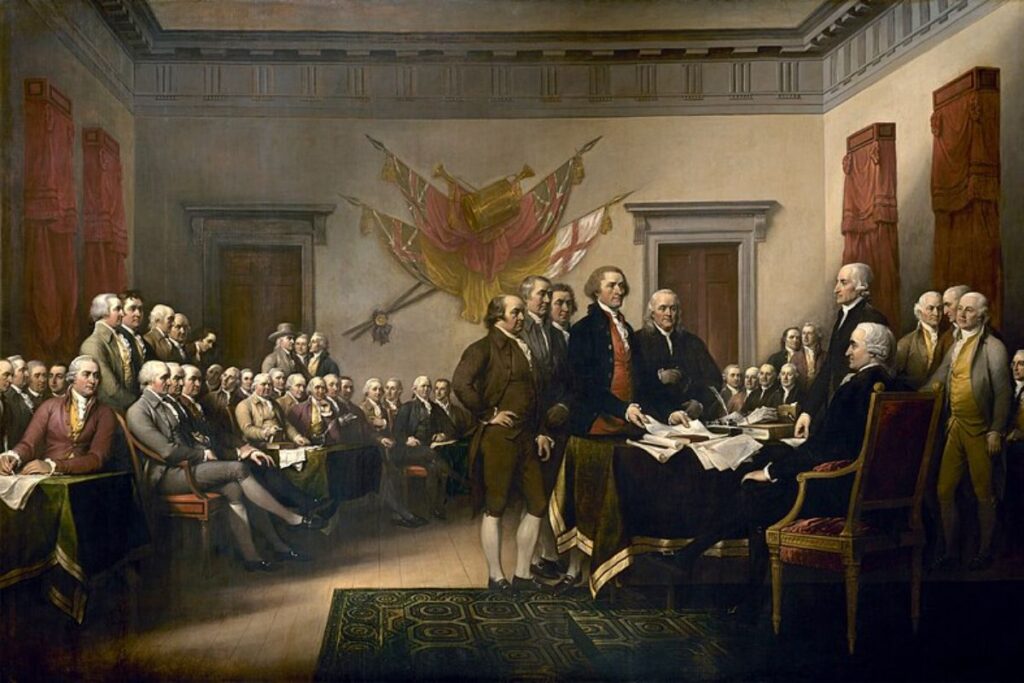Some documents are more than just words on a page—they’re the sparks that ignited revolutions, transformed governments, and shaped entire societies. From declarations to groundbreaking agreements, these historic documents didn’t just mark a moment in time—they created ripple effects that are still felt today. Here are ten game-changing papers you should know about.
The Magna Carta
The Magna Carta is basically the OG of constitutional rights. Signed by King John of England after pressure from rebellious barons, it limited royal power and laid the groundwork for modern democracy. While most of its clauses are outdated today, its core idea—that no one is above the law—remains a cornerstone of justice. It’s a reminder that even kings have to follow the rules sometimes.
The Declaration of Independence
This document didn’t just declare America’s independence—it made “life, liberty, and the pursuit of happiness” a global catchphrase. Written primarily by Thomas Jefferson, it boldly told Britain, “We’re done with your taxes and tyranny.” Its ideas about freedom and equality inspired countless other movements around the world. It’s also proof that sometimes, a strongly worded letter can change history.
The Bill of Rights
The Bill of Rights is the first 10 amendments to the U.S. Constitution, and it’s basically a checklist of fundamental freedoms. It guarantees rights like free speech, religion, and the press, making sure no government can trample on personal liberties. Its influence stretches far beyond the U.S., inspiring similar protections in countries across the globe. It’s why you can tweet, protest, or binge-watch whatever you want (within reason).
The Emancipation Proclamation
When Abraham Lincoln issued the Emancipation Proclamation, it marked a turning point in the American Civil War. It declared enslaved people in Confederate states free, adding a moral cause to the Union’s fight. While it didn’t immediately end slavery, it set the stage for the 13th Amendment and shifted the war’s focus to freedom. It’s a reminder of how powerful words can be in the fight for justice.
The Treaty of Versailles
The Treaty of Versailles officially ended World War I, but its effects went way beyond peace. It imposed harsh penalties on Germany, redrew borders, and created the League of Nations. While the treaty aimed to prevent future wars, its strict terms inadvertently fueled the rise of World War II. Love it or hate it, this document reshaped the global landscape in ways no one could have imagined.
The United Nations Charter
This document established the United Nations, a global organization dedicated to peace, security, and human rights. Signed after World War II, it aimed to prevent future conflicts and foster international cooperation. The charter’s principles, like the respect for sovereignty and human rights, remain central to global diplomacy today. It’s proof that even in a divided world, nations can come together for the greater good.
The Universal Declaration of Human Rights
This groundbreaking document laid out 30 fundamental rights everyone is entitled to, regardless of nationality, gender, or background. Drafted by a team led by Eleanor Roosevelt, it became a global standard for human dignity and equality. It’s been translated into over 500 languages, making it one of the most widely recognized documents in history. While the fight for human rights continues, this declaration is a beacon of hope.
The Constitution of India
The Constitution of India is one of the longest and most detailed constitutions in the world. It turned India into a democratic republic and guaranteed equality, justice, and liberty for all its citizens. Written after independence from British rule, it brought together diverse cultures and religions under a single framework. It’s a masterclass in creating a democratic foundation for a newly free nation.
The Paris Agreement
The Paris Agreement brought countries together to tackle one of humanity’s biggest challenges: climate change. This international treaty committed nations to limit global warming to below 2 degrees Celsius and pursue efforts to keep it under 1.5 degrees. While challenges remain, it’s a historic example of global cooperation for the planet’s future. It’s the kind of document that makes you believe in teamwork.
The Gettysburg Address
Though technically a speech, Abraham Lincoln’s Gettysburg Address was short enough to fit on a napkin but powerful enough to define a nation. Delivered during the Civil War, it honored those who fought at Gettysburg and redefined America’s commitment to equality and democracy. Its famous line, “government of the people, by the people, for the people,” still inspires today. It’s proof that you don’t need a lot of words to make a big impact.
These documents didn’t just sit on shelves—they changed the world in profound ways. They’re a reminder that the power of the written word can echo across centuries, shaping the world one page at a time.

